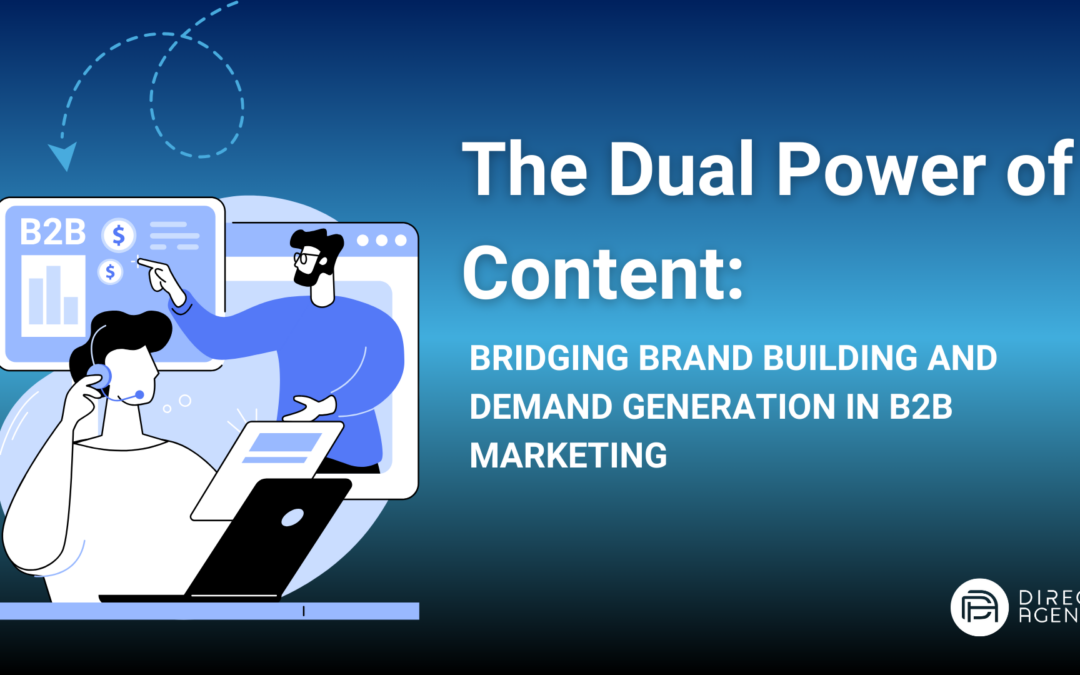In the cutthroat world of B2B startups, it’s all about the immediate results. The relentless push for quick wins often skews focus heavily towards lead generation, sidelining the crucial aspect of brand building. As we approach 2025, we are seeing a significant shift on the horizon. Forward-thinking B2B firms are starting to get it: while snagging leads is vital, crafting a solid brand foundation is equally as essential for long-term success.
The Current B2B Marketing Landscape
A 2023 survey from the Content Marketing Institute shows a staggering 85% of B2B marketers prioritize lead generation, with only 65% giving a nod to brand awareness. This discrepancy is glaringly evident in startups, where the pressure for immediate revenue often dictates marketing strategies. Yet, here’s the kicker: data from Benchmarker reveals that B2B SaaS companies focusing more on brand marketing than leads are more likely to hit or exceed their revenue goals. That’s a big slap in the face to the conventional wisdom that always puts lead generation first, especially in the dog-eat-dog SaaS sector, where differentiation is everything.
Take a leaf out of Salesforce’s book. They allocate around 50% of their marketing budget to brand-building, and their brand value surged by 13% year-over-year, hitting a cool $23.8 billion in 2023. Household names understand the value of continually investing in brand positioning.
The Role of Brand Awareness in B2B Decision-Making
Brand awareness isn’t just fluff—it’s a game-changer in B2B purchasing. According to a 2023 Gartner study, B2B buyers consider an average of three suppliers before making a decision. Strong brand awareness significantly ups your chances of making it to that shortlist. not just about being known; it’s about “mental availability”—being top-of-mind when it matters. The Ehrenberg-Bass Institute found that B2B brands with higher mental availability are 30% more likely to be shortlisted by buyers. Think about the implications for your marketing strategy.
Content Marketing: The Nexus of Brand Building and Lead Generation
Content marketing sits at the critical juncture of brand building and lead generation. When done right, it boosts brand awareness, establishes thought leadership, and churns out qualified leads. But let’s face it, many B2B marketers fumble this, producing a deluge of low-value content that neither engages buyers nor differentiates brands. Digital publishing has made it too easy, resulting in content that’s repetitive, superficial, generic, and poorly researched.
The Shift Towards High-Value, Brand-Specific Content
To rise above the noise in 2024 and beyond, B2B companies need to pivot towards high-quality, brand-specific content. Here’s how:
- Incorporate Unique Research and Data: Conduct original surveys, analyze proprietary data, and collaborate with academic institutions.
- Leverage Internal Expertise: Showcase thought leadership, share case studies, and offer behind-the-scenes looks at innovation processes.
- Provide Actionable, Valuable Information: Create detailed guides, develop interactive tools, and offer exclusive industry forecasts.
- Focus on Brand-Specific Experiences: Share customer success stories, develop content series aligned with brand values, and create immersive multimedia experiences.
- Prioritize Content Distribution and Promotion: Have a strategic plan for each piece of content, use paid promotion, and repurpose high-performing content across multiple channels.
By emphasizing content value over volume, B2B companies build brand authority and generate qualified leads, transforming content marketing from a mundane task into a powerful brand differentiator.
Overcoming Challenges
Balancing brand and lead generation isn’t a walk in the park. Common obstacles include limited resources, pressure for immediate results, and difficulty in measuring brand impact. Here’s how to tackle these challenges :
- Educate Stakeholders: Highlight the long-term value of brand building.
- Start Small: Gradually scale brand-building efforts.
- Invest in Analytics: Look at a collection of company health metrics to better measure brand impact.
As we edge closer to 2025, B2B startups that balance lead generation and brand building will thrive. By laying a robust brand foundation while maintaining effective lead generation tactics, companies can secure a sustainable competitive edge in an increasingly crowded market. It’s time to play the long game to lead generation.
Jackson Richards, VP of Strategy, Direct Agents

